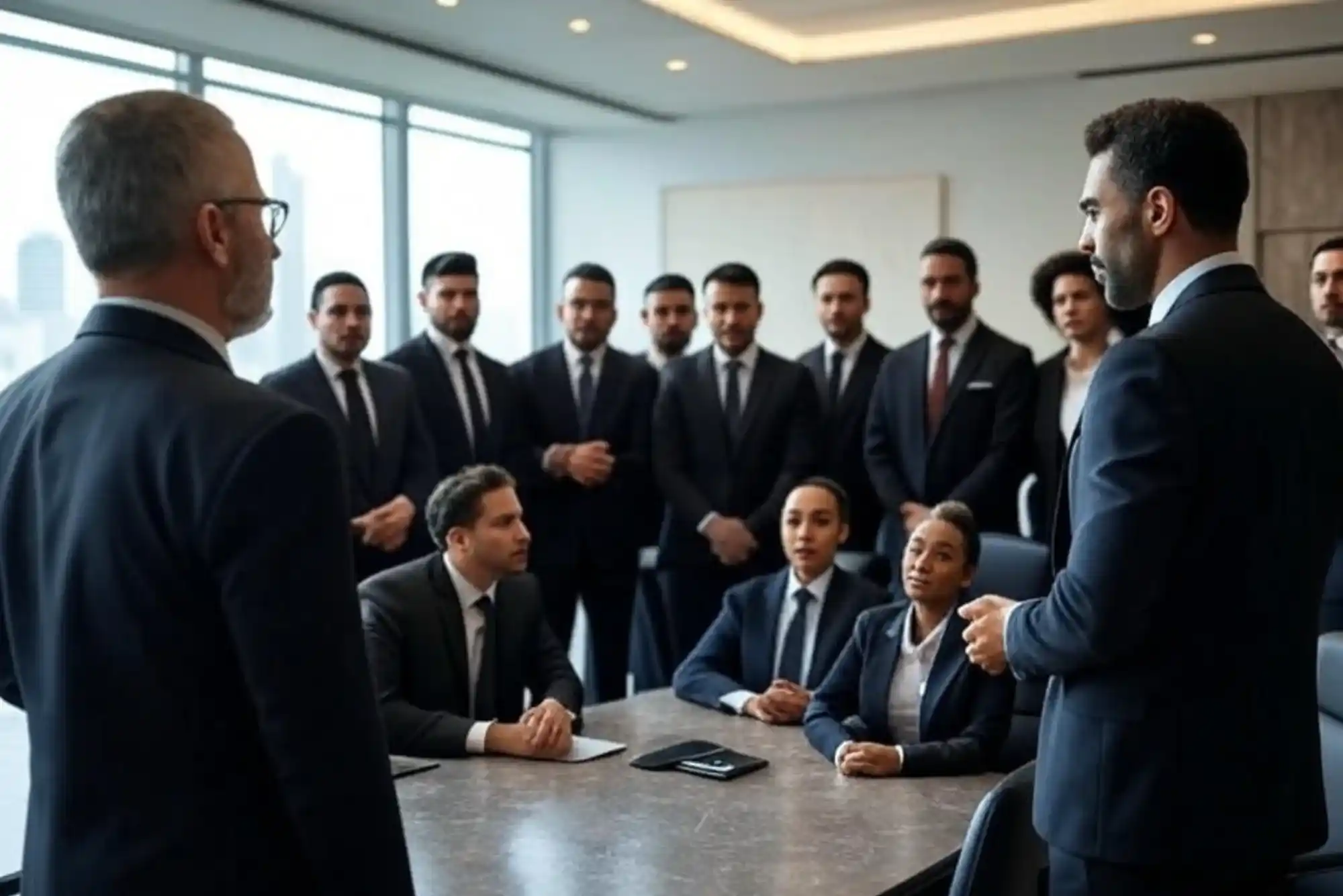In a rapidly evolving legal environment like the United Arab Emirates, staying updated with new laws and amendments is not merely an advantage—it is an essential duty for every legal professional. For those specializing in criminal defense, the stakes are particularly high. Any oversight or outdated legal reference can have significant consequences for clients, making legal vigilance a non-negotiable professional requirement. This brings us to a frequently asked question: how do criminal lawyers in Dubai ensure they remain aligned with the latest developments in criminal law?
Understanding this process sheds light not only on the legal profession in Dubai but also on the broader infrastructure supporting continuous legal education, adaptation, and responsiveness within the UAE’s justice system. This article explores the multifaceted approach criminal lawyers take to keep pace with legal changes and maintain a high standard of legal service in an ever-changing legal landscape.
The Dynamic Nature of Criminal Law in the UAE
The UAE is known for its swift and strategic legal reforms aimed at enhancing governance, economic development, and public safety. Over the past decade, the country has seen a number of criminal law updates that reflect modern realities, including changes to cybercrime regulations, anti-money laundering laws, drug-related offenses, and procedural amendments. These reforms demand timely comprehension and application by legal practitioners.
In this context, legal professionals—especially those practicing criminal law—must continuously adapt to ensure that their interpretations and arguments are rooted in the most current statutes. The process of staying informed is both systematic and ongoing.
Government Publications and Official Gazettes
One of the primary sources of legal updates in the UAE is the official gazette, where new laws, amendments, and legal interpretations are published. This government-issued publication is an authoritative source of legal texts and provides comprehensive details about statutes and their effective dates.
Criminal lawyers in Dubai often subscribe to digital versions of the official gazette or receive updates through specialized legal databases that offer instant notifications of newly enacted laws. These tools enable lawyers to review legal texts as soon as they are made public, ensuring timely integration into their legal strategies.
Moreover, legal professionals are trained to examine the fine print in these documents. Every new statute or amendment is meticulously studied in terms of its applicability, scope, and possible implications on existing legal precedents.
Continuing Legal Education and Professional Development
Continuing education is an integral part of the legal profession in the UAE. Bar associations, legal societies, and judicial institutions regularly organize seminars, workshops, and conferences focusing on recent legislative changes and emerging legal challenges. Attendance at these events is more than a formality; it serves as an essential knowledge exchange platform for legal professionals.
These educational programs are often led by judges, senior prosecutors, and legal academics who provide contextual interpretations of new criminal laws. Such sessions are particularly valuable as they offer insights not only into what the new laws say, but also how they are likely to be applied in practice.
Many lawyers also enroll in specialized certification courses that focus on evolving areas of criminal law, such as digital forensics, financial crime, or international legal cooperation. These programs enable them to build expertise in niche areas while aligning with the broader legal framework of the UAE.
Legal Research and Peer Collaboration
Legal research remains a cornerstone of professional legal practice. Criminal lawyers invest a significant amount of time in examining court decisions, scholarly articles, and legislative commentaries. In the UAE, this includes tracking the judgments passed by local courts, as they often offer practical interpretations of statutory provisions.
Collaboration with peers also plays a crucial role. Lawyers frequently engage in discussion forums, legal think tanks, and roundtable talks where they debate recent legal developments. These discussions help legal professionals understand not just the letter of the law, but also its spirit and intended application.
It is common for legal teams within firms or organizations to hold internal briefings whenever a significant change in criminal law is announced. These sessions involve analyzing the implications of the change, identifying affected case areas, and updating internal legal protocols.
Use of Digital Tools and Legal Databases
Technology plays a pivotal role in helping lawyers stay updated. Advanced legal databases offer structured and searchable access to UAE legislation, case law, and legal commentaries. These platforms are designed for real-time updates, ensuring that users receive notifications about new criminal laws, executive regulations, and relevant court rulings.
Artificial intelligence tools integrated into legal research platforms can now highlight legal trends, forecast probable legal outcomes based on precedent, and even recommend reading materials based on a lawyer’s practice area. These tools significantly enhance the efficiency and depth of legal research.
Additionally, mobile applications tailored for legal professionals offer instant access to legislation and case summaries. Lawyers can review, annotate, and share legal documents directly from their devices, ensuring that they can stay informed even when away from their offices or courtrooms.
Engagement with Regulatory Authorities
Lawyers practicing in Dubai often engage directly with regulatory authorities, such as the Public Prosecution, the Dubai Courts, and the Ministry of Justice. These institutions occasionally release explanatory notes, procedural guidelines, or public circulars aimed at clarifying the application of new laws.
Attending sessions organized by these institutions not only strengthens a lawyer’s understanding of the law but also builds trust and cooperation between the legal profession and the judiciary. In high-stakes criminal defense work, such relationships can be instrumental in securing access to timely and accurate legal information.
Furthermore, some lawyers contribute to legislative review processes by offering feedback on draft laws or participating in legal consultation committees. This not only keeps them ahead of upcoming legal shifts but also allows them to shape the future legal landscape of the country.
Internal Knowledge Management
Within law firms or legal departments, structured knowledge management systems are in place to catalog and update internal legal resources. These systems may include regularly updated legal manuals, case law libraries, procedural templates, and briefings on new laws.
Dedicated legal researchers or knowledge officers are often tasked with monitoring legal developments and disseminating information across the team. These professionals ensure that every practicing lawyer has access to the latest resources required for competent representation in criminal cases.
Internal newsletters or monthly updates serve as effective tools for summarizing complex legislative changes in a digestible format. This ensures that every member of the legal team—regardless of their experience level—has a functional understanding of the most recent developments.
Cultural and Linguistic Fluency
A unique aspect of staying current with UAE laws involves navigating both Arabic and English legal texts. While Arabic remains the official language of the law, many practitioners rely on bilingual legal resources. Proficiency in both languages enables lawyers to accurately interpret laws and communicate effectively with clients, authorities, and the judiciary.
The multilingual nature of Dubai’s legal community also fosters cross-border legal insights, particularly for expatriate lawyers who may bring international perspectives into the local legal context. However, deep cultural fluency in UAE traditions, legal customs, and societal norms is equally vital, especially in sensitive criminal cases.
Ethical Responsibility and Client Trust
Staying updated is not merely a procedural requirement; it is an ethical responsibility. Clients place immense trust in their legal representatives, especially in criminal cases where reputations, livelihoods, and even personal freedoms are at stake.
By staying informed, lawyers uphold the standards of legal integrity and ensure that their counsel is both current and compliant with UAE regulations. This trust, once earned, becomes the foundation of a lawyer’s reputation and long-term professional success.
Failing to keep up with the law can lead to serious professional repercussions, including malpractice claims, court sanctions, or reputational damage. Therefore, vigilance in legal updates is as much about professional survival as it is about excellence in service.
Conclusion
The legal landscape in the UAE, and Dubai in particular, is marked by constant evolution, driven by a commitment to modernization, justice, and international alignment. For those involved in criminal defense, keeping pace with these changes is a critical aspect of their professional role.
Through a combination of government publications, continuous education, digital research tools, regulatory engagement, and internal knowledge systems, criminal lawyers in Dubai remain well-equipped to handle the complexities of modern criminal law. Their commitment to staying updated is not just a reflection of professional discipline but a necessary strategy for effective legal advocacy in one of the region’s most dynamic legal environments.
As laws continue to evolve in response to technological advancements, societal shifts, and global legal trends, the responsibility of staying current remains central to legal practice. In fulfilling this responsibility, criminal defense professionals ensure that the justice system in Dubai operates with precision, integrity, and fairness.




